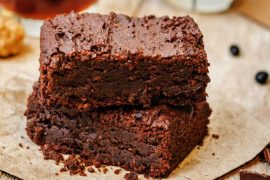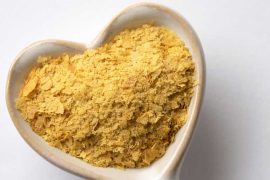A balanced diet is crucial for maintaining good health, and it consists of three main macronutrients: fat, carbohydrates, and protein. Protein, in particular, has long been praised for its health benefits.
Protein is often regarded as essential due to its role as the body’s building block. It forms the basis of bones, muscles, skin, and blood. Additionally, protein aids in cell repair and regeneration, contributing to overall bodily functions.
When it comes to weight loss, protein can be a valuable asset. It helps the brain recognize the hormone leptin, which signals fullness, resulting in reduced hunger and increased energy levels. Research supports the idea that a higher protein intake can boost leptin production, promoting a feeling of satiety.
However, not all protein sources are created equal. Some protein-rich foods, particularly those from animal sources like steak and pork, can be high in saturated fat. Excessive saturated fat consumption is associated with an increased risk of heart disease, as highlighted by the Harvard T.H. Chan School of Public Health and the American Heart Association.
This is where lean proteins come into play. Choosing lean protein sources can mitigate the risks associated with high saturated fat intake. In fact, research suggests that a higher intake of lean protein may even lower the risk of heart disease, while a diet high in red meat is linked to an elevated risk.
Protein is a vital component of a balanced diet, serving as the body’s fundamental building block and supporting various physiological processes. Opting for lean protein sources is recommended to reap the benefits of protein without the drawbacks of excessive saturated fat consumption, ultimately contributing to better heart health.
Protein Needs: The Variable Factors That Determine How Much You Really Need:
Protein is indeed crucial for our diet, but it’s important to note that many Americans tend to consume more protein than they actually need. The Centers for Disease Control and Prevention (CDC) recommends that protein should make up 10 to 35 percent of one’s daily caloric intake. For adults, this translates to approximately 46 grams of protein for women and 56 grams for men, according to guidelines from the American Heart Association (AHA).
To make healthier protein choices, it’s advisable to focus on lean protein sources. These sources, as defined by the U.S. Department of Agriculture (USDA), contain less than 10 grams of total fat and 4.5 grams or less of saturated fat per 100 grams or 3.5 ounces. This helps ensure that you get the protein your body needs without consuming excessive amounts of unhealthy fats, which can contribute to health issues like heart disease.
By choosing lean protein sources, individuals can meet their protein requirements while also managing their fat intake for better overall health. Lean protein is essential for building and repairing tissues in your body, maintaining muscle mass, and supporting various bodily functions. Here are 15 food sources of lean protein to include in your diet:
1. Chicken:
Chicken, particularly skinless chicken breast, is a fantastic protein source that is both delicious and lean. Here are the nutritional details according to the U.S. Department of Agriculture (USDA) for one small skinless chicken breast:
Calories: 160
Protein: 36 grams
Saturated Fat: 1 gram
Total Fat: 2.5 grams
This information highlights that skinless chicken breast is not only rich in protein but also low in saturated fat, making it an excellent choice for those looking to maintain a healthy and balanced diet. It’s a versatile ingredient that can be prepared in various ways, making it a popular choice among individuals seeking lean protein sources.
2. Turkey:
Turkey is another lean and nutritious protein source, similar to chicken. Here’s some nutritional information for a 3.5-ounce (100-gram) serving of skinless turkey breast:
Calories: Approximately 135 calories
Protein: Approximately 30 grams
Saturated Fat: Less than 1 gram
Total Fat: Around 1 gram
Turkey is a lean meat that provides a substantial amount of protein while keeping fat content low. It’s a versatile option that can be used in sandwiches, salads, or as a main dish. Like chicken, turkey is a popular choice for individuals seeking lean protein sources as part of a balanced diet.
3. Fish:
Many types of fish, including salmon, tuna, and cod, are excellent sources of protein and are generally low in fat.
Salmon: Salmon is not only rich in protein but also packed with healthy omega-3 fatty acids, which are beneficial for heart and brain health. As you mentioned, it typically provides around 25 grams of protein per 3.5 ounces (100 grams) of cooked salmon.
Tuna: Tuna is another fish that’s high in protein and low in fat. Canned tuna, for example, contains approximately 30 grams of protein per 3.5 ounces (100 grams) when drained.
Cod: Cod is a white fish known for its mild flavor and flaky texture. It’s also a good source of protein, offering about 20 grams of protein per 3.5 ounces (100 grams) of cooked cod.
4. Tuna:
Canned tuna in water is a convenient and readily available source of lean protein. A standard serving size of 3.5 ounces contains approximately 30 grams of protein. This makes it a popular choice for individuals looking to increase their protein intake while keeping their fat consumption low. Additionally, canned tuna in water is easy to store, versatile, and can be used in a variety of dishes, making it a practical option for those seeking a protein-rich diet.
5. Lean Beef:
Selecting lean cuts of beef such as sirloin, tenderloin, or round steak is a wise choice for those seeking a protein-rich diet. These cuts, when trimmed of visible fat, typically contain approximately 31 grams of protein per 3.5 ounces. This makes them an excellent source of high-quality protein while minimizing the intake of saturated fats. Incorporating these lean cuts into your meals can help support your protein needs while maintaining a balanced and healthy diet.
6. Pork Tenderloin:
Pork tenderloin is indeed a lean and protein-rich cut of pork. Here’s some nutritional information for pork tenderloin:
Protein: Approximately 23 grams of protein per 3.5 ounces (100 grams).
Fat: Pork tenderloin is relatively low in fat compared to other cuts of pork, making it a lean protein source.
Calories: The calorie content is moderate, with approximately 143 calories per 3.5-ounce serving.
Pork tenderloin is a versatile meat that can be prepared in various ways, from roasting and grilling to pan-searing. It’s a great choice for individuals seeking a lean source of protein while still enjoying the flavors of pork.
7. Lean Ground Meat:
Opting for lean ground meat is a healthy choice for those looking to reduce their fat intake while still enjoying meat. Here are some lean ground meat options to consider:
Turkey: Ground turkey, especially turkey breast, is a lean choice. Look for ground turkey labeled as 90% lean or higher to minimize fat content.
Chicken: Ground chicken, particularly chicken breast, is another lean option. Similar to turkey, choose ground chicken that is 90% lean or higher for lower fat content.
Beef: When selecting ground beef, look for options labeled as 90% lean or higher. This means it contains less fat compared to fattier cuts, making it a healthier choice.
By choosing these lean ground meat varieties, you can maintain your protein intake while reducing saturated fat and overall calorie content.
8. Eggs:
Eggs are a nutritious and versatile food source that provide both protein and essential nutrients. Here’s some detailed information about the nutritional content and potential health benefits of eggs:
Whole Egg (One Large):
Calories: 73.9 calories
Protein: 6.2 grams
Saturated Fat: 1.6 grams
Total Fat: 5 grams
Egg White (One Large):
Calories: Approximately 17 calories
Protein: 3.6 grams
Saturated Fat: 0 grams
Total Fat: 0.05 grams
Eggs have been the subject of some controversy due to their cholesterol content. They are naturally high in dietary cholesterol, and there have been concerns about their potential impact on heart health.
9. Greek Yogurt:
Greek yogurt is a protein-rich dairy product known for its versatility and nutritional benefits. It typically contains around 10 grams of protein per 6-ounce serving and is a good source of calcium and probiotics. Greek yogurt’s thick and creamy texture makes it a popular choice for various culinary uses, from sweet treats to savory dishes. It’s available in different fat levels to suit different dietary preferences and goals.
10. Cottage Cheese:
Cottage cheese is a versatile food often used in lasagna and as a spread on crackers. It’s a good source of calcium, offering approximately 92.5 calories, 12.1 grams of protein, 1.4 grams of saturated fat, 2.5 grams of total fat, and 113.5 mg of calcium per half-cup serving according to the USDA.
11. Tofu:
Tofu is indeed a popular plant-based source of protein. It typically contains approximately 8 grams of protein per 3.5 ounces (100 grams) serving. Tofu is not only protein-rich but also versatile, making it a common ingredient in vegetarian and vegan diets. It can be used in various savory and sweet dishes, from stir-fries and salads to smoothies and desserts, making it a valuable addition to a plant-based or protein-focused diet.
12. Tempeh:
Tempeh is another soy-based product that is even higher in protein content compared to tofu. It typically provides around 19 grams of protein per 3.5 ounces (100 grams) serving. Tempeh is known for its nutty flavor and firm texture, making it a versatile ingredient in various dishes. It’s not only a great source of plant-based protein but also contains other nutrients like fiber, vitamins, and minerals, making it a nutritious choice for those following vegetarian or vegan diets or looking to increase their protein intake.
13. Lentils:
Lentils are indeed a fantastic source of plant-based protein. They contain approximately 9 grams of protein per half-cup of cooked lentils (100 grams). Besides being rich in protein, lentils are also a good source of dietary fiber, vitamins, and minerals. They are a versatile ingredient and can be used in various dishes, such as soups, stews, salads, and as a meat substitute in many recipes. Lentils are a popular choice for individuals looking to incorporate more plant-based protein into their diets while enjoying the benefits of a nutritious and filling food source.
14. Chickpeas:
chickpeas, also known as garbanzo beans, are another excellent source of plant-based protein. They typically provide around 8 grams of protein per half-cup of cooked chickpeas (100 grams). Chickpeas are not only protein-rich but also a good source of dietary fiber, vitamins, and minerals. They are a staple in many cuisines and are used to make dishes like hummus, falafel, and various stews and salads. Chickpeas are a versatile and nutritious ingredient for those seeking to increase their protein intake, particularly in vegetarian and vegan diets.
15. Edamame:
Edamame, young soybeans, are a notable source of plant-based protein. They typically contain approximately 11 grams of protein per half-cup of cooked edamame beans (100 grams). Edamame is not only protein-rich but also packed with essential nutrients, including fiber, vitamins, and minerals. They are commonly served as a snack, in salads, or as a side dish in various cuisines. Edamame is a great choice for individuals looking to incorporate more plant-based protein into their diets while enjoying the health benefits of soybeans.
Incorporating a variety of these lean protein sources into your diet can help you meet your protein needs while maintaining a balanced and healthy eating plan. Remember to pair them with vegetables, whole grains, and healthy fats for a well-rounded meal.
Disclaimer:
The information contained in this article is for educational and informational purposes only and is not intended as a health advice. We would ask you to consult a qualified professional or medical expert to gain additional knowledge before you choose to consume any product or perform any exercise.








